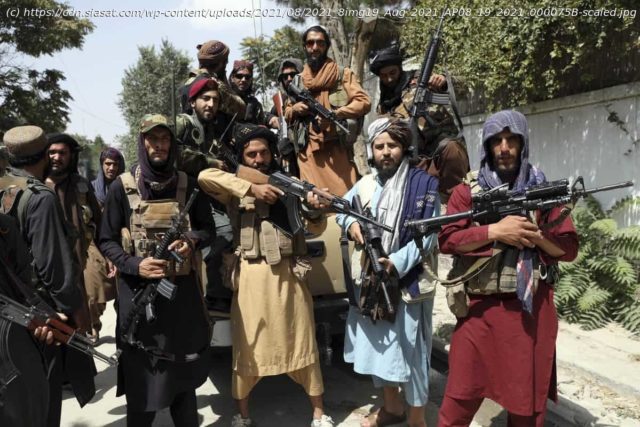After the abrogation of article 370, Pakistan faces a credibility crisis in Kashmir as it failed to orchestrate large-scale terror attacks and social
After the abrogation of article 370, Pakistan faces a credibility crisis in Kashmir as it failed to orchestrate large-scale terror attacks and social unrest. At this moment, when, in Pakistan’s calculations, India is vulnerable due to recent developments in Afghanistan, the US’ embarrassing withdrawal, and fears of China’s escalation in Ladakh, Pakistan is likely to intensify militancy in Kashmir. Further, high levels of public alienation due to the end of special status and decades of jihadist radicalization will ensure massive support to Taliban, AQ, and IS-styled radical jihadist infiltrators. India’s three-decade-old Pakistan-sponsored Islamist militancy-hit Jammu and Kashmir stands vulnerable to intensified terrorist violence with the Taliban takeover. Pakistan, facing heat from the FATF pressure, is likely to shift terror training camps from the Pakistan-Occupied Kashmir (PoK) to Afghanistan as Taliban-ruled Afghanistan, on account of Taliban’s endemic ties with the GHQ Rawalpindi, will be like a de facto Pakistani colony and a favourite safe-haven for jihadists of all hues and colors. Such an exercise equips Islamabad with much-needed deniability in a major terror attack by a Pak-sponsored terrorist group in India. Also, it will help in easing off the FATF pressure. Reportedly, training of the cadres of India-focussed terror groups has already begun in Afghanistan, in the Taliban training camps. In April 2020, in a raid at Taliban camp in Nangarhar, the Afghan Security Forces killed ten militants of Jaish-e-Muhammad (JeM), a Kashmir-focussed terror group responsible for some of the deadliest fidayeen attacks like Pulwama (2019), Pathankot(2016), and the parliament attack(2001). After the abrogation of article 370, Pakistan is trying to revive Al Badr, a Kashmiri terror group active in the 1990s. After the 1990s, Al Badr went dormant in Kashmir; however, it sustained its presence in the FATA region and cultivated strong links with Haqqanis and the Taliban. Reportedly, its present commander, Hamza Burhan, a resident of Pulwama, met Gulbuddin Hekmatyar, a pro-Taliban leader and Hizb-e-Islami chief. It seems the ISI has revived Al Badr in Kashmir because the latter can have better coordination with Taliban foreign terrorists due to its generational ties. Pakistan may divert a segment of the Taliban’s battle-hardened terrorists to Kashmir for the following reasons. After three decades of a war-like jihadist lifestyle, they may not be an ideal fit for governance-related positions, and keeping them idle may transform them into an internal security challenge for Pakistan. Sending them to Kashmir in a calculated and well-strategized manner may be the best bet for Pakistan and perhaps for its benefactor China, to keep the region on the boil and keep India under pressure and boxed in. It serves the Chinese interests as they would focus on consolidating in the Indian Ocean, where the Indian Navy continues to be a force to reckon with. India’s headaches in Kashmir are likely to adversely impact its counter-measures against the Chinese moves in the Indian Ocean. Reportedly, terrorist commanders from PoK have instructed the valley-based terrorist leadership to lie low and protect themselves for another month and a half to two months, with the promise of intensifying militancy and social unrest after that by sending foreign fighters. In the short run, Pakistan may confine itself to a medium-level terror strike in Kashmir to test India’s response.
Start
United States
USA — Events Why India needs to be pro-active to counter Taiban 2.0 security challenge






